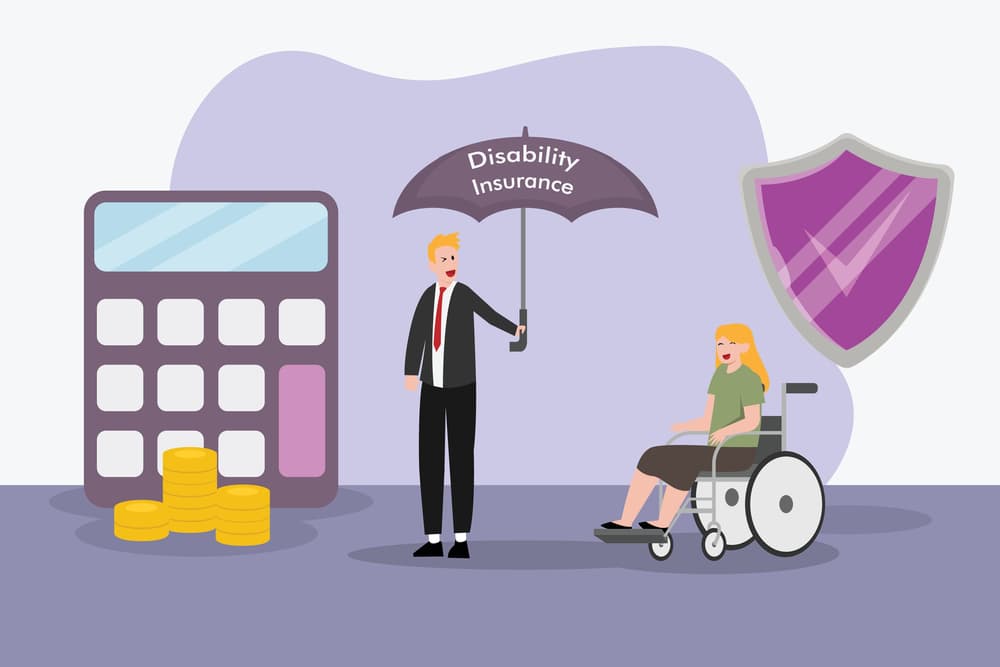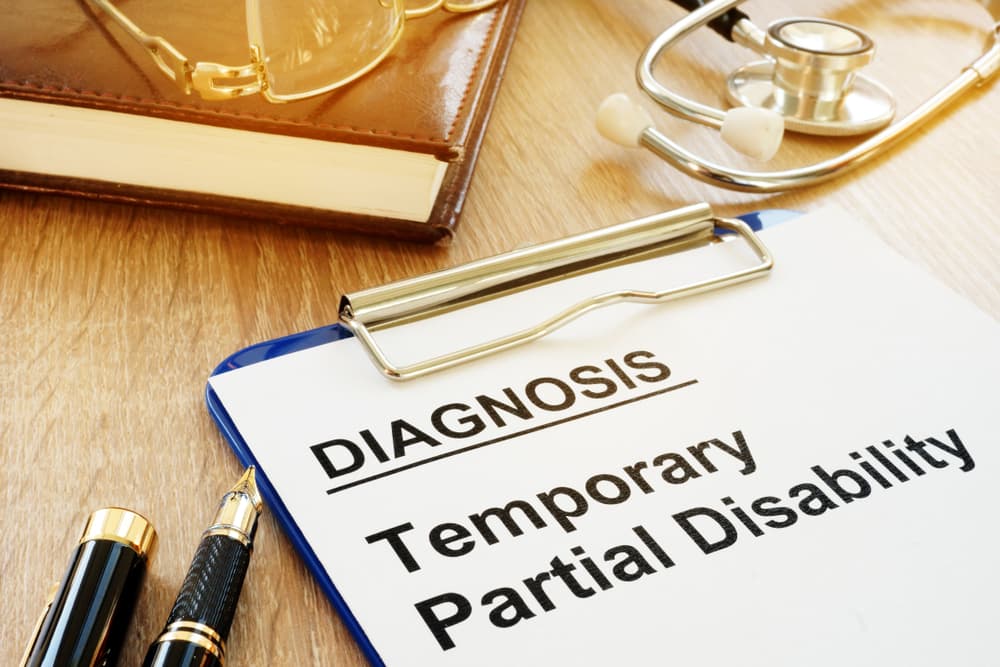When most people think of disability, they picture someone who cannot work due to an injury or illness. However, there's another type of disability that's less well-known but equally important: partial disability.
Partial disability is when you can still work but not at the same level as before. Maybe you can't do all your job duties or need to work fewer hours because of your health condition. This can happen for many reasons, like hurting your back, getting sick, or having a mental health issue.
Let's take a closer look at what partial disability means and how it's different from total disability. Never hesitate to consult a disability attorney near you if you find yourself in this situation.
What is Partial Disability?
Partial disability is a condition where an injury or illness affects one's capacity to perform some work. Yet, they retain some ability to work instead of being completely incapacitated.
This can look different for everyone, but here are some common examples:
When You Can Do Some Job Tasks, But Not All
One way partial disability can manifest is when you can perform some of your job duties but not all. This can happen for various reasons, depending on your specific health condition and the nature of your work.
For example, you work in an office, which involves typing on a computer, attending meetings, and giving presentations. If you develop carpal tunnel syndrome, typing for long periods might become painful and difficult. However, you can still attend meetings and give presentations without much trouble.
In this scenario, you are considered partially disabled. You can still work and contribute to your company but can't perform all your usual tasks. Your employer might accommodate your condition by giving you more tasks that don't involve typing or providing you with ergonomic equipment to make typing easier.
The ability to perform some job tasks doesn't mean you're not disabled. If your condition substantially limits your ability to work, you may still qualify for partial disability benefits, even if you can do some of your job.
When You Can Work, But Need to Work Fewer Hours
Another way partial disability can affect your work is by reducing the number of hours you can work. This can happen when your health condition causes fatigue, pain, or other symptoms that make it difficult to work a full schedule.
For instance, imagine you work as a teacher. Your job involves standing for long periods, interacting with students, and grading assignments. If you're diagnosed with a chronic illness like multiple sclerosis, you might find that you don't have the energy to work full days.
In this case, you might need to reduce your teaching hours. Maybe you drop from full-time to part-time or take more breaks during the day. These accommodations allow you to keep working in a manageable way with your health condition.
Working fewer hours can impact your income, which is where partial disability benefits come in. If you have disability insurance, you may be eligible for benefits that help make up for your lost income.
When You Can Work, But in a Different Role That Pays Less

A third way partial disability can affect your work is by requiring you to take a different role that pays less than your previous job. This can happen when your health condition prevents you from performing the essential functions of your regular job, but you can still work in some capacity.
For example, let's say you work in construction as a carpenter. Your job involves a lot of physical labor, like lifting heavy tools and materials, climbing ladders, and working on your feet all day. If you injure your back, you can no longer do these physical tasks.
However, you can take on a different role within your company, like working in the office, handling paperwork, or managing inventory. While this role allows you to keep working, it might pay less than your carpenter position.
In this scenario, you are considered partially disabled. You can still work, but not in the same capacity as before, and your earnings are reduced. Partial disability benefits can help bridge the gap between your new salary and pre-disability income.
No matter which type of partial disability you have, you should discuss a possible benefits claim with a disability lawyer right away.
How is Partial Disability Different from Total Disability?
Understanding partial disability helps to compare it to total disability. Total disability means you can't work at all because of your injury or illness. You can't do any of your job duties, and you can't earn a paycheck.
With partial disability, you can still work in some way and earn money, even if it's less than before. The main difference is that with partial disability, you have some ability to work and earn an income, while with total disability, you don't.
How Does Partial Disability Insurance Work?

Many disability insurance policies cover partial disability. If you have disability insurance through your job or a private policy, you should know how partial disability benefits work.
Usually, if you're partially disabled, you'll get a part of your income from before your disability. The exact amount depends on your specific policy and how much your disability affects your work. For example, your policy might give you 60 percent of your income before your disability if you're partially disabled.
To get partial disability benefits, you typically need to:
Have a Medical Condition That Limits Your Ability to Work
To qualify for partial disability benefits, you must have a medical condition that impairs your ability to work. This can be a physical condition, such as a back injury or chronic illness, or a mental health condition, like depression or anxiety.
The key is that your condition must somehow limit your work capacity. This can mean that you cannot perform certain job duties, that you need to work fewer hours, or that you need to take on a different role altogether.
Having a clear medical diagnosis and documentation of your condition is important. This typically involves seeing a doctor who can assess your condition and provide a report detailing your limitations. Your disability attorney can advise whether your condition might qualify you for partial disability benefits.
Earn Less Than You Did Before Your Disability
Another requirement for partial disability benefits is that you must earn less than you did before your disability. This is because the purpose of these benefits is to help replace a portion of your lost income.
You likely won't qualify for benefits if you can work in a reduced capacity but still earn the same as before. The key is that your earnings must have decreased due to your disability.
This can happen in a few ways. Maybe you're working fewer hours and earning less. Or maybe you've had to take a lower-paying job because of your health limitations. In any case, reducing your income is a key factor in determining your eligibility for benefits, and your disability lawyer can present evidence of decreased earnings.
Be Under the Regular Care of a Doctor
Finally, to qualify for partial disability benefits, you typically need to be under the regular care of a doctor. This means you're actively seeking treatment for your condition and following your doctor's recommendations.
There are a few reasons for this requirement. First, it helps ensure that you're doing everything possible to manage your condition and improve your ability to work. Second, it provides ongoing documentation of your condition and how it's impacting your work capacity.
Your doctor will play a key role in the partial disability claims process. They'll need to provide reports and possibly fill out forms detailing your condition and limitations. Regularly seeing your doctor ensures that this information is up-to-date and accurate.
Note that "regular" care doesn't necessarily mean seeing your doctor every week or even every month. The frequency of your visits will depend on your specific condition and treatment plan. However, you should see your doctor as often as they recommend and follow through with any treatments or therapies they prescribe.
Remember that every policy is different, so have a disability attorney determine what yours covers.
Why Partial Disability Coverage Matters
Many people don't think about partial disability coverage, but it can be important if you find yourself in this situation. Here's why:
Replacing Lost Income
One of the primary reasons partial disability coverage is so important is that it can replace a portion of your lost income. When an injury or illness limits your ability to work, it can significantly impact your finances. Even if you can work in some capacity, you cannot earn as much as you did before your disability.
This is where partial disability benefits come in. These benefits aim to bridge the gap between earning potential and pre-disability income. The exact amount you receive will depend on the specifics of your policy, but it's typically a percentage of your pre-disability income.
For example, you earned $5,000 per month before becoming partially disabled. If your policy provides a 60 percent benefit, you will receive $3,000 monthly in partial disability benefits. This can significantly affect your ability to cover expenses and maintain your quality of life.
Partial disability benefits do not aim to fully replace your income. The idea is to provide a safety net that helps you get by while you cannot work at full capacity. However, even a partial replacement of your income can be a lifeline when you're facing a reduced earning potential due to a disability.
Keeping Up with Bills
Another significant benefit of partial disability coverage is its ability to support you in paying your bills. Experiencing a reduction in income due to a disability can pose challenges in covering your regular expenses. These include everything from your mortgage or rent payment to your utility bills, grocery, and medical expenses.
Partial disability benefits provide a source of income that can meet these obligations. By replacing a portion of your lost income, these benefits can aid you in paying your bills and avoid falling behind.
This is particularly important because falling behind on bills can have long-term consequences. It can damage your credit score, making it harder to borrow money in the future. It can also lead to late fees, penalties, and legal action.
By helping you keep up with your bills, partial disability benefits can provide financial stability during a challenging time. This peace of mind can be valuable as you focus on your health and recovery.
Focusing on Health and Recovery
Perhaps one of the most overlooked benefits of partial disability coverage is that it can give you the time and space you need to focus on your health and recovery. When dealing with an injury or illness, your top priority should be improving. However, the financial pressures of not working can make this difficult.
With partial disability benefits, you can work less or in a different capacity while still receiving a portion of your income. This can take some of the pressure off and allow you to prioritize your health.
For example, if you're undergoing physical therapy for a back injury, you may need to attend sessions several times a week. If you were trying to work a full-time job simultaneously, this can be extremely challenging. However, if you can work part-time and receive partial disability benefits, you may have more flexibility to attend your therapy sessions and focus on your recovery.
Similarly, if you're dealing with a mental health condition like depression or anxiety, the stress of trying to maintain a full workload can exacerbate your symptoms. By allowing you to work in a reduced capacity, partial disability benefits can give you the space you need to focus on your mental health treatment and self-care.
The bottom line is that recovering from a disability takes time and energy. Partial disability benefits can provide the financial support you need to prioritize your health, which can ultimately get you back to work faster and more successfully.
What Should You Do If You Think You're Partially Disabled?

If you think you might be partially disabled, the first thing to do is talk to your doctor. They can look at your condition and determine if you have any limits on your ability to work.
If your doctor says you're partially disabled, the next step is to tell your employer and insurance company. You'll need to give them medical proof of your disability and follow the steps to claim under your policy.
Navigating the claims process can prove challenging, particularly if your claim faces denial. If you're having difficulty with your claim, it might help to talk to a lawyer who knows much about disability insurance. A disability lawyer can guide you through the process and protect your rights.
Contact a Disability Lawyer Today
If you think you might be partially disabled, don't wait to get help. Talk to your doctor, let your employer and insurance company know, and think about getting advice from a qualified ERISA long term disability attorney. Don't let a partial disability hold you back - get the support you need to move forward.



